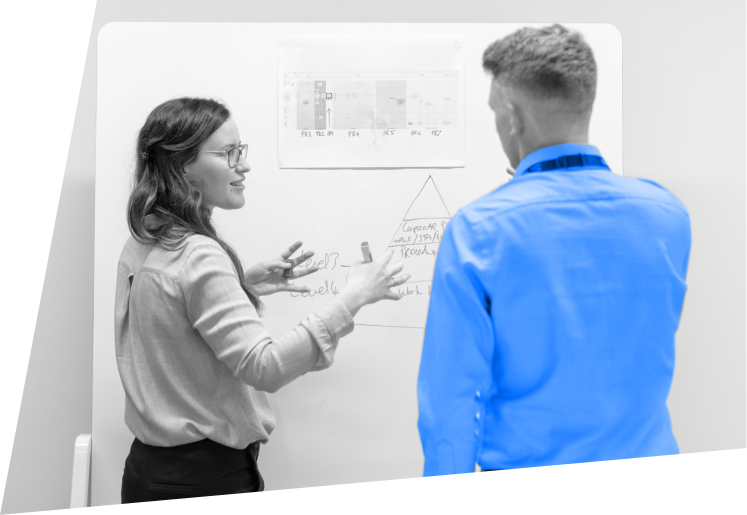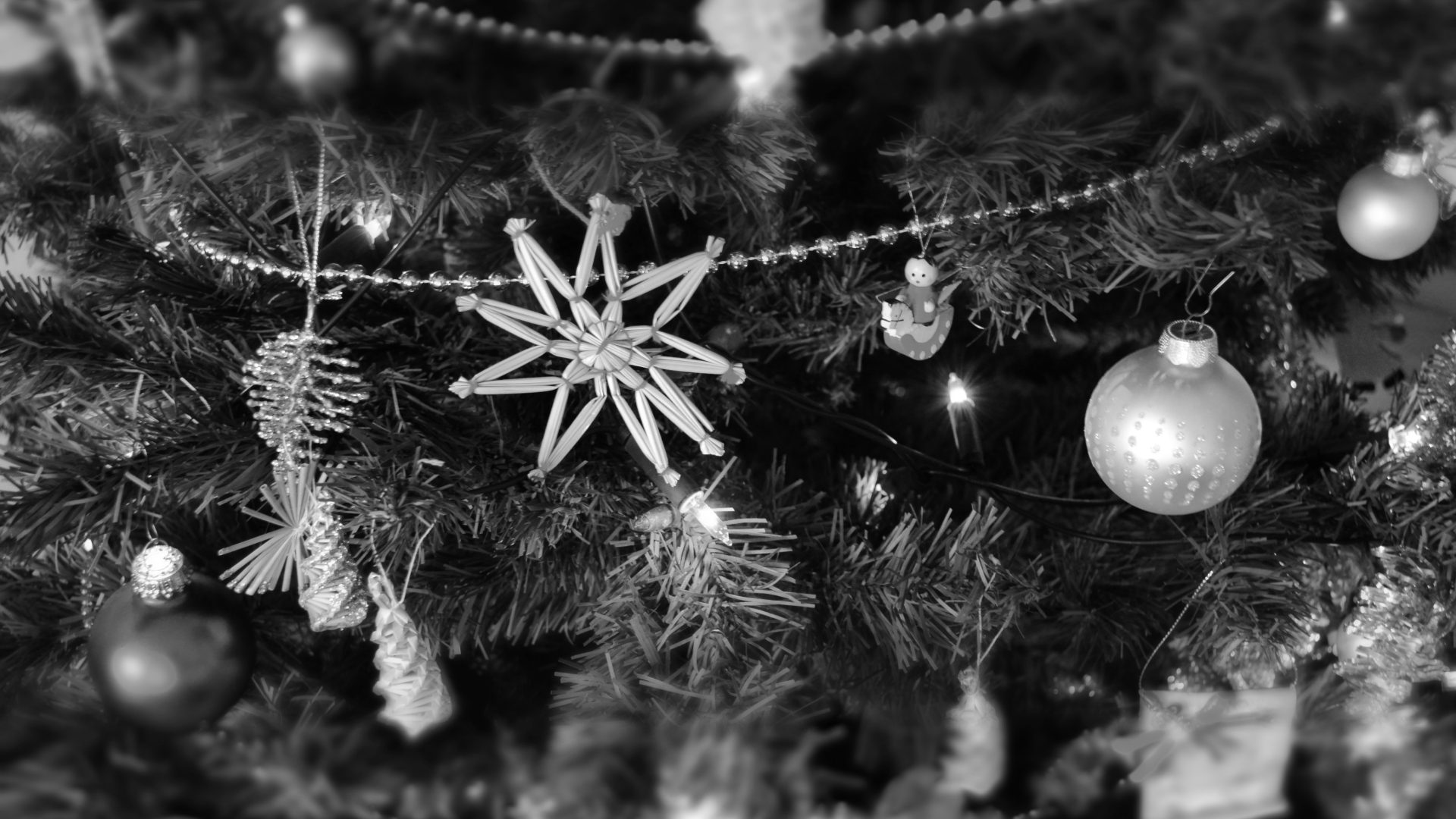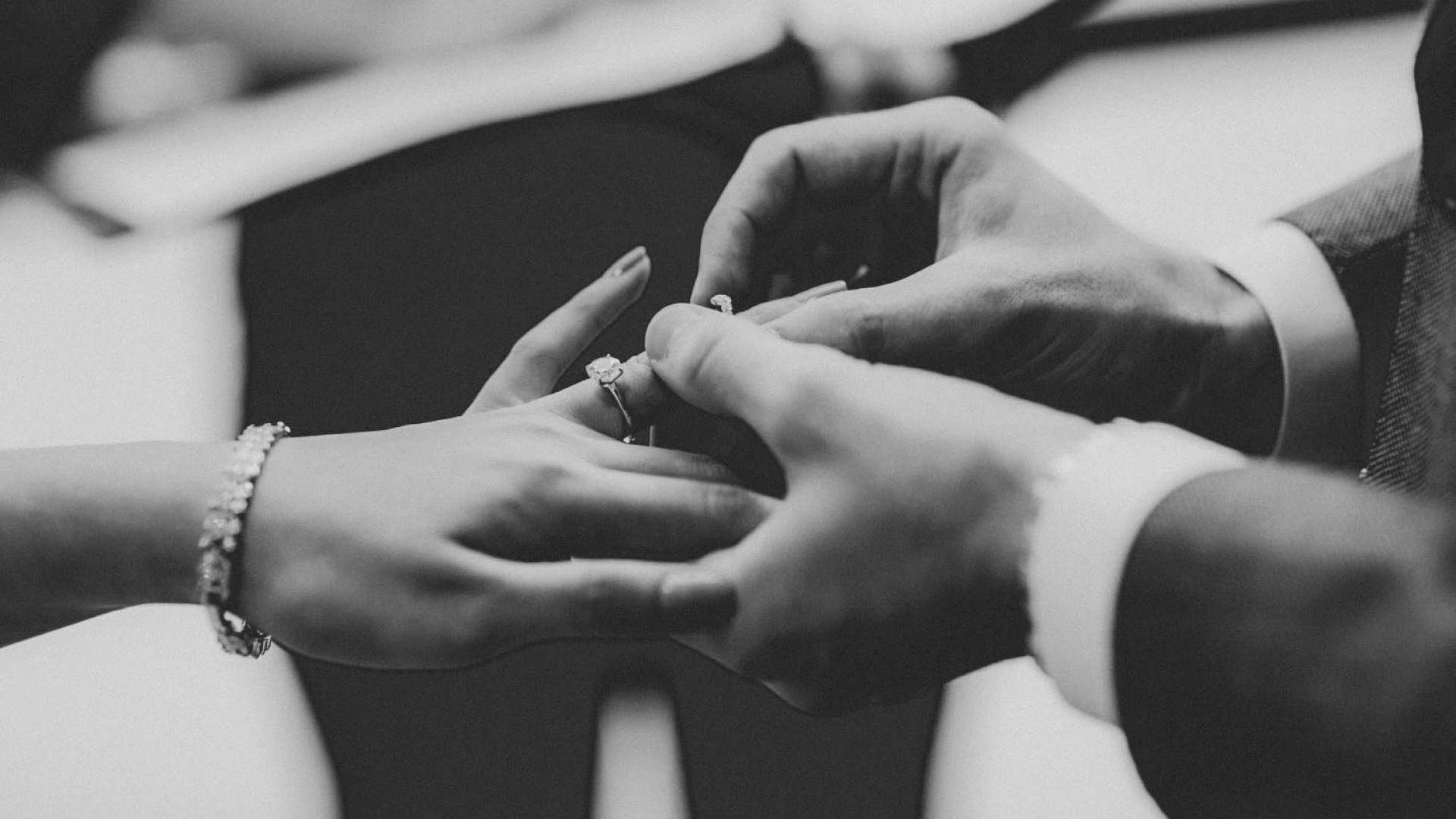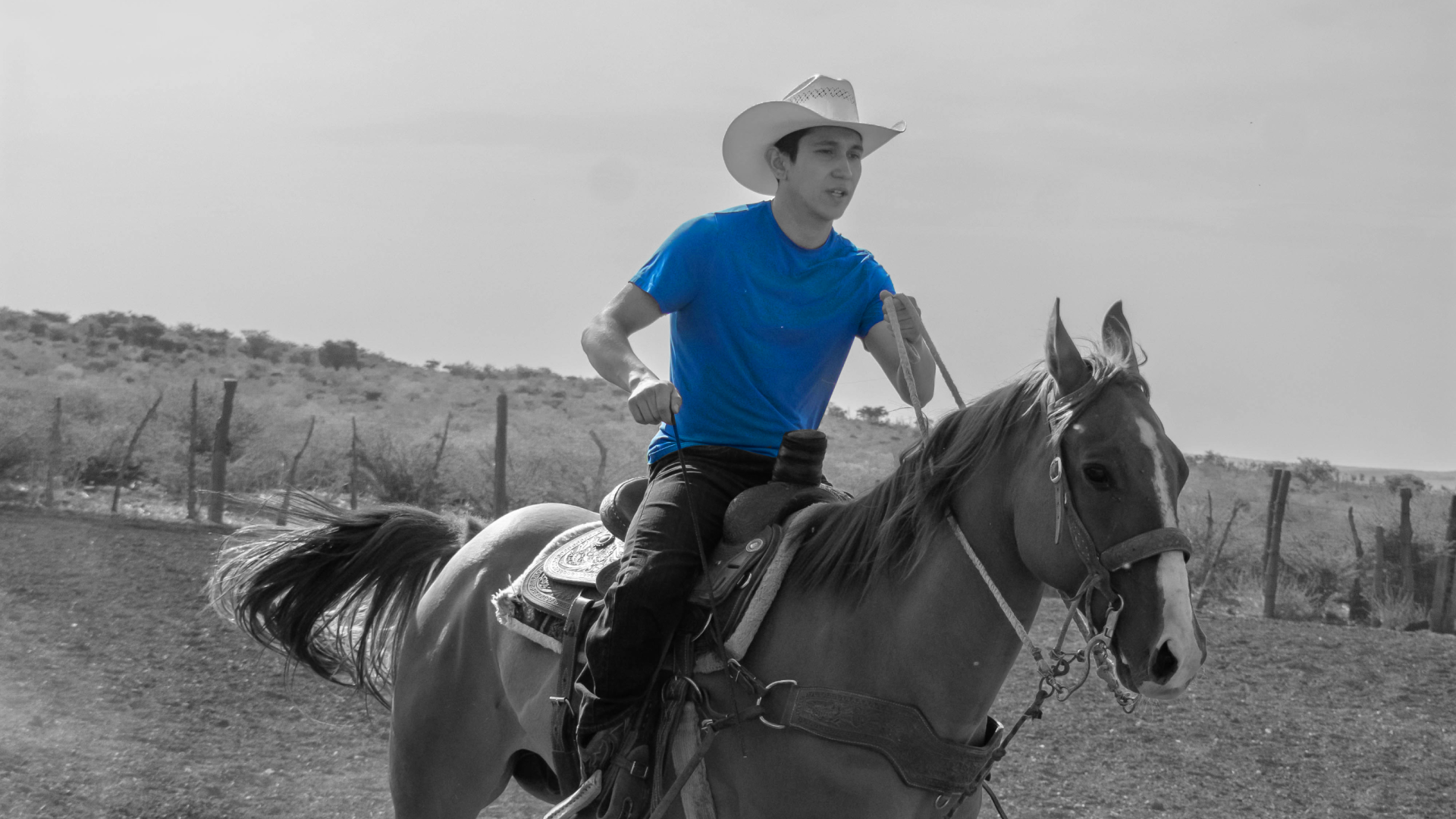Possessive pronouns (Bezittelijke voornaamwoorden)
| Whose dog is it? Is it yours or mine? | Van wie is de hond? Is hij van jou of van mij? |
| This is my dog. This is your dog. | Dit is mijn hond. Dit is jouw hond. |
| Whose notebook is this? Is it hers? | Van wie is deze notitieboek? Is het van haar? |
| Is this her notebook? | Is dit haar notitieboek? |
| I saw some dinner on the table. Was it hers? | Ik zag wat eten op tafel staan. Was het van haar? |
| It was her dinner on the table. | Het was haar eten op tafel. |
| Whose book is this? Is it yours or mine? | Van wie is dit boek? Is het van jou of van mij? |
| It’s mine. | Het is van mij. |
| Is this cat yours? | Is deze kat van jou? |
| No, it is hers. | Nee, het is van haar. |
| Whose phone is it? His or hers? | Van wie is deze telefoon? Van hem of van haar? |
| Actually, it’s mine. | Eigenlijk is het van mij. |
| Guys, is this your house? | Is dit jullie huis? |
| Yes, it’s ours. | Ja, het is van ons. |
| Was that bike theirs? | Was die fiets van hen? |
| No, it’s just hers. | Nee, die is van haar. |
| This is my book. | Dit is mijn boek. |
| Is this your pen? | Is dit jouw pen? |
| Yes, it’s her house. | Ja, het is haar huis. |
| Did you read his diary? | Heb je zijn dagboek gelezen? |
| What is this dog doing? That’s not its ball! | Wat doet deze hond? Dat is zijn bal niet! |
| These are not our bags. | Dit zijn niet onze tassen. |
| Did you see our new kitchen? | Heb je onze nieuwe keuken gezien? |
| Is this their response? | Is dit hun antwoord? |
| Are you guys invited to their wedding? | Ben je uitgenodigd op hun bruiloft? |
| The dog wagged its tail happily. | De hond kwispelde vrolijk met zijn staart. |
| The tree lost its leaves in the autumn. | De boom verloor zijn bladeren in de herfst. |
| The company celebrated its 5th anniversary. | Het bedrijf vierde zijn vijfde verjaardag. |
| I can’t stand this dog! It barks all day long! | Ik kan deze hond niet uitstaan! Hij blaft de hele dag! |
Quantifiers (describing quantity)
| much waste | veel afval |
| How much waste is in your factory? | Hoeveel afval is er in jouw fabriek? |
| to reduce the amount of waste | de hoeveelheid afval verminderen |
| We need to reduce the amount of waste in our factory. | We moeten de hoeveelheid afval in onze fabriek verminderen. |
| How much will it cost? | Hoeveel gaat dat kosten? |
| a considerable amount of money | een aanzienlijk bedrag |
| high-quality materials | materialen van hoge kwaliteit |
| You will have to pay a considerable amount of money for these high-quality materials. | Je zult een aanzienlijk bedrag moeten betalen voor deze materialen van hoge kwaliteit. |
| global warming | de opwarming van de aarde |
| How much of the glacier melted because of global warming? | Hoeveel van de gletsjer is gesmolten door de opwarming van de aarde? |
| to cause the glacier melting | het smelten van de gletsjer veroorzaken |
| Did global warming cause a substantial amount of glacier melting? | Heeft de opwarming van de aarde een aanzienlijk deel van het smelten van de gletsjer veroorzaakt? |
| How many people came? | Hoeveel mensen kwamen er? |
| to exceed expectations | verwachtingen overtreffen |
| The number of participants exceeded our expectations. | Het aantal deelnemers overtrof onze verwachtingen. |
| Are there many people who vape? | Zijn er veel mensen die vapen? |
| an increase in | een toename van |
| A recent report has shown an increase in the number of people who vape. | Een recent rapport laat een toename zien van het aantal mensen die roken. |
| Do you think many birds migrate to the same country each year? | Denk je dat veel vogels elk jaar naar hetzelfde land migreren? |
| a significant number | een aanzienlijk aantal |
| A significant number of bird species migrate to the same regions each year. | Een aanzienlijk aantal vogelsoorten migreert elk jaar naar dezelfde regio’s. |
| a lot of money | veel geld |
| He has a lot of money in his bank account. | Hij heeft veel geld op zijn bankrekening. |
| positive feedback | de positieve feedback |
| to receive a lot of feedback | veel feedback krijgen |
| We received a lot of positive feedback on our presentation. | We hebben veel positieve feedback gekregen op onze presentatie. |
| a lot of students | veel studenten |
| Did you have a lot of students on the trip? | Had je veel studenten op reis? |
Prepositions of time and place (Voorzetsels van tijd en plaats)
| on the table | op de tafel |
| Did you leave your glasses on the table? | Heb je je glazen op tafel laten staan? |
| on the floor | op de vloer |
| Yes, but when I came back home, they were on the floor! | Ja, maar toen ik thuiskwam, lagen ze op de vloer! |
| on the Vistula River | op de rivier de Wisla |
| The event took place on the Vistula River. | Het evenement vond plaats op de rivier de Wisla. |
| on TV | op de tv |
| I would love to be on TV one day. | Ik zou graag op een dag op tv komen. |
| on the Internet | op het internet |
| Did you see what they posted on the Internet? | Heb je gezien wat ze op het internet hebben gezet? |
| at 221B Baker Street | in Baker Street 221B |
| Didn’t he live at 221B Baker Street? | Woonde hij niet in Baker Street 221B? |
| at home | thuis |
| Yeah, sure, and he loved it when Sherlock was at home! | Ja, zeker, en hij vond het heerlijk als Sherlock thuis was! |
| at work | op het werk |
| I can’t believe he said this to me at work! | Ik kan niet geloven dat hij dit op het werk tegen me zei. |
| at university | op de universiteit |
| Will I meet you at university? | Zie ik je op de universiteit? |
| at a party | op een feestje |
| He met her at a party. | Hij ontmoette haar op een feestje. |
| at your house | bij jou thuis |
| Isn’t it weird he still lives at your house? | Is het niet raar dat hij nog steeds bij jou thuis woont? |
| next to | naast |
| next to the post office | naast het postkantoor |
| The school is next to the post office. | De school is naast het postkantoor. |
Conditionals (Voorwaardelijke zinnen)
| If you mix red and yellow, you get orange. | Als je rood en geel mengt, krijg je oranje. |
| Water boils if it reaches 100 degrees Celsius. | Water kookt als het 100 graden Celsius bereikt. |
| to set an alarm | een wekker zetten |
| If I don’t set an alarm, I oversleep. | Als ik geen wekker zet, verslaap ik me. |
| to feel sick | zich ziek voelen |
| If I eat too much, I feel sick. | Als ik te veel eet, voel ik me ziek. |
| to commit a crime | een misdaad begaan |
| If you commit a crime, you go to jail. | Als je een misdaad begaat, ga je naar de gevangenis. |
| If she sees a rat, she screams. | Als ze een rat ziet, schreeuwt ze. |
| touch the fire | het vuur aanraken |
| If you touch a fire, you get burned. | Als je vuur aanraakt, verbrand je jezelf. |
| If Anna doesn’t do her homework, her mother will be upset. | Als Anna haar huiswerk niet maakt, zal haar moeder boos zijn. |
| at the weekend | tijdens het weekend |
| If it rains at the weekend, we will stay home. | Als het tijdens het weekend regent, blijven we thuis. |
| to come over | langskomen |
| If she has time, she will come over. | Als ze tijd heeft, komt ze langs. |
| to make it on time | op tijd zijn |
| If we leave earlier, we will make it on time. | Als we eerder vertrekken, zullen we op tijd zijn. |
| If the plane is delayed, they will be home very late. | Als het vliegtuig vertraging heeft, zullen ze erg laat thuis zijn. |
| If we start a diet today, we will be healthy soon. | Als we vandaag met een dieet beginnen, zullen we snel gezond zijn. |
| If she calls him, he will come here. | Als ze hem belt, zal hij hierheen komen. |
| If we lived in the USA, we would speak English better. | Als we in de VS zouden wonen, zouden we beter Engels spreken. |
| an only child | het enig kind |
| If I had a brother, I wouldn’t be an only child. | Als ik een broer had, zou ik niet enig kind zijn. |
| If they were nicer, I would talk to them. | Als ze aardiger waren, zou ik met ze praten. |
| If I had more money, I would buy a castle. | Als ik meer geld had, zou ik een kasteel kopen. |
| Would you marry her if she were younger? | Zou je met haar trouwen als ze jonger was? |
| If she were slimmer, she would become a model. | Als ze slanker was, zou ze model worden. |
| If I were you, I would apologise to her. | Als ik jou was, zou ik me bij haar verontschuldigen. |
| in my place | op mijn plaats |
| What would you do if you were me? | Wat zou je doen als je mij was? |
Modal verbs (Modale werkwoorden)
| I can do it. It’s not hard. | Ik kan het. Het is niet moeilijk. |
| to speak French fluently | vloeiend Frans spreken |
| Anna can speak French fluently. | Anna spreekt vloeiend Frans. |
| Caroline could play poker when she was ten years old. | Caroline kon pokeren toen ze tien jaar oud was. |
| Kat could talk to me for hours. | Kat zou uren met me kunnen praten. |
| right away | meteen |
| They were able to catch the gangster right away. | Ze konden de gangster meteen vangen. |
| They weren’t able to catch the gangster right away. | Ze waren niet in staat de gangster meteen te pakken. |
| They couldn’t catch the gangster right away. | Ze konden de gangster niet meteen pakken. |
| Can you pass me my wallet? | Kun je me mijn portemonnee geven? |
| Could you tell me everything? | Kun je me alles vertellen? |
| You may sit, sir. | U mag gaan zitten, meneer. |
| May I see the king? | Mag ik de koning zien? |
| You might want to read the documents first. | Misschien wil je eerst de documenten lezen. |
| to pay the water bill | waterrekening betalen |
| I have to pay the water bill. I have no other choice. | Ik moet de waterrekening betalen. Ik heb geen andere keuze. |
| to break a leg | een been breken |
| I have to go to the hospital. I broke my leg. | Ik moet naar het ziekenhuis. Ik heb mijn been gebroken. |
| I must tell you what I saw! | Ik moet je vertellen wat ik zag! |
| I must stop calling her. It’s not good for any of us. | Ik moet stoppen met haar te bellen. Het is voor niemand goed. |
| You mustn’t tell her. | Je moet het haar niet vertellen. |
| You mustn’t smoke in the airplane, sir. | Je moet niet roken in het vliegtuig. |
| You guys don’t have to do this for me. | Jullie hoeven dit niet voor mij te doen. |
| You don’t have to wait until the end of the year. | Je hoeft niet te wachten tot het einde van het jaar. |
| to call from the landline | bellen met de vaste lijn |
| They must be at home. She just called me from the landline. | Ze moeten thuis zijn. Ze belde me net met de vaste lijn. |
| She hasn’t replied to any of my messages. Her phone may be off. | Ze heeft niet geantwoord op mijn berichten. Haar telefoon staat misschien uit. |
| cancelled class | de les die niet doorgaat |
| Paul might come to visit me at work if his class gets canceled. | Paul komt me misschien opzoeken op het werk als zijn les niet doorgaat. |
| Kim couldn’t leave her kids! | Kim kon haar kinderen niet achterlaten! |
| This can’t be true! | Dit kan niet waar zijn! |
| I wonder why she didn’t call me. She might have been away. | Ik vraag me af waarom ze me niet gebeld heeft. Misschien was ze weg. |
| to miss a train | de trein missen |
| Ann hasn’t arrived yet. She may have missed the train. | Ann is nog niet aangekomen. Misschien heeft ze de trein gemist. |
Passive voice (Het passief)
| He accepted the gift. The gift was accepted by him. | Hij accepteerde het geschenk. Het geschenk werd door hem geaccepteerd. |
| He is going to interview me. I’m going to be interviewed. | Hij gaat me interviewen. Ik ga geïnterviewd worden. |
| I must finish my chores. My chores must be finished. | Ik moet mijn karweitjes afmaken. Mijn karweitjes moeten afgemaakt worden. |
| I clean my fridge once a year. My fridge is cleaned once a year. | Ik maak mijn koelkast één keer per jaar schoon. Mijn koelkast wordt één keer per jaar schoongemaakt. |
| You may not be given another taste. | Je mag niet nog een keer proeven. |
| She reads this book often. This book is often read by her. | Zij leest dit boek vaak. Dit boek wordt vaak door haar gelezen. |
| Is he tested once a month? He is not tested once a month. | Wordt hij één keer per maand getest? Hij wordt niet één keer per maand getest. |
| You may not have been given another taste. | Je hebt misschien geen andere smaak gekregen. |
| The firefighter is checking the house. The house is being checked by the firefighter. | De brandweerman controleert het huis. Het huis wordt gecontroleerd door de brandweerman. |
| They have destroyed his marriage. His marriage has been destroyed. | Ze hebben zijn huwelijk verwoest. Zijn huwelijk is verwoest. |
| The guest has eaten the food. The food has been eaten by the guest. | De gast heeft het eten opgegeten. Het eten is door de gast opgegeten. |
| The child has opened the gift. The gift has been opened by the child. | Het kind heeft het cadeau geopend. Het kind heeft het cadeau geopend. |
| Someone stole a car last night. A car was stolen last night. | Iemand heeft gisteravond een auto gestolen. Er is gisteravond een auto gestolen. |
| She accepted the proposal. The proposal was accepted by her. | Zij heeft het aanzoek geaccepteerd. Het aanzoek werd door haar geaccepteerd. |
| Someone saw a suspect at 1 a.m. The suspect was seen at 1 a.m. | Iemand heeft om 1 uur ‘s nachts een verdachte gezien. De verdachte was gezien om 1 uur ‘s nachts. |
| Someone was repairing the house. My house was being repaired. | Iemand was het huis aan het repareren. Mijn huis werd gerepareerd. |
| She was preparing the food. The food was being prepared. | Zij was het eten aan het klaarmaken. Het eten werd klaargemaakt. |
| John will clean the house. The house will be cleaned. | John zal het huis schoonmaken. Het huis zal worden schoongemaakt. |
| The team will win the match. The match will be won by the team. | Het team zal de wedstrijd winnen. De wedstrijd zal worden gewonnen door het team. |
| They will build a new bridge. A new bridge will be built. | Zij zullen een nieuwe brug bouwen. Een nieuwe brug zal worden gebouwd. |
| We had achieved our goals. Our goals had been achieved. | We hebben onze doelen bereikt. Onze doelen zijn bereikt. |
| She had already cooked dinner. The dinner had already been cooked. | Ze had al gekookt. Het avondeten was al gekookt. |
| Every week we bake a cake. A cake is baked every week. | Elke week bakken we een taart. Elke week wordt een taart gebakken. |
| I am going to visit my parents. My parents are going to be visited. | Ik ga mijn ouders bezoeken. Mijn ouders gaan bezocht worden. |
| We should all attend the meetings. The meetings should be attended by us. | We zouden allemaal de vergadering bijwonen. De vergadering moet worden bijgewoond door ons. |
| I can do it in five minutes. It can be done in five minutes. | Ik kan het in vijf minuten doen. Het kan in vijf minuten gedaan worden. |
Talking about present (Tegenwoordige tijd)
| always | altijd |
| They always have time for us. | Ze hebben altijd tijd voor ons. |
| usually | meestal |
| He usually buys food on Sunday. | Hij koopt meestal eten op zondag. |
| often | vaak |
| She very often needs our help. | Ze heeft heel vaak onze hulp nodig. |
| We often buy books for our daughters. | We kopen vaak boeken voor onze dochters. |
| sometimes | soms |
| rarely | zelden |
| never | nooit |
| every day/week/month… | elke dag/week/maand… |
| She plays basketball every day. | Ze speelt elke dag basketbal. |
| once a week/month/year… | een keer per week/maand/jaar… |
| twice an hour/minute… | twee keer per uur/minuut… |
| twenty times a day | twintig keer per dag |
| on Mondays/Tuesdays | op maandag/dinsdag |
| These kids are Italian. | Deze kinderen zijn Italiaans. |
| He is a good friend. | Hij is een goede vriend. |
| She is in Amsterdam. | Zij is in Amsterdam. |
| from Ukraine | uit Oekraïne |
| I am from Ukraine. | Ik kom uit Oekraïne. |
| I’m hungry. | Ik heb honger. |
| We are thirsty. | Wij hebben dorst. |
| I am at home. | Ik ben thuis. |
| Water boils at 100°C. | Water kookt bij 100°C. |
| to orbit the Earth | om de Aarde draaien |
| The Moon orbits the Earth. | De Maan draait om de Aarde. |
| to revolve around the Sun | om de Zon draaien |
| The Earth revolves around the Sun. | De Aarde draait om de Zon. |
| Two plus two equals to four. | Twee plus twee is vier. |
| I want to learn Polish. | Ik wil Pools leren. |
| They know English very well. | Ze kunnen heel goed Engels. |
| We often buy books for our daughters. | We kopen vaak boeken voor onze dochters. |
| She likes me. | Ze vindt me leuk. |
| She knows many words in Dutch. | Ze kent veel woorden in het Nederlands. |
| He speaks French. | Hij spreekt Frans. |
Talking about the past (Praten over het verleden)
| since we were nine | sinds we negen jaar oud waren |
| He has been my best friend since we were nine. | Hij is mijn beste vriend sinds we negen jaar oud waren. |
| for more than eight years | al meer dan acht jaar |
| I have worked for this company for more than eight years. | Ik werk al meer dan acht jaar voor dit bedrijf. |
| just | net |
| She has just written the letter. | Ze heeft net de brief geschreven. |
| This journey has been a very pleasant surprise. | Deze reis was een zeer aangename verrassing. |
| I’ve broken my leg. | Ik heb mijn been gebroken. |
| Have you got the present yet? | Heb je het cadeau al? |
| It’s the first time I’ve been to Amsterdam. | Het is de eerste keer dat ik in Amsterdam ben. |
| I have watched this film with you for the last time. | Ik heb deze film voor de laatste keer met jou bekeken. |
| It’s the best time I’ve had in months. | Het is de beste tijd die ik in maanden heb gehad. |
| We have played football since we were children. | We voetballen al sinds we kinderen waren. |
| He has not known her for a long time. | Hij kent haar niet voor een lange tijd. |
| She hasn’t had a day off since 1999. | Ze heeft sinds 1999 geen vrije dag meer gehad. |
| Have you ever thought about going to Asia? | Heb je er ooit aan gedacht om naar Azië te gaan? |
| This is the most ridiculous thing you’ve ever told me. | Dit is het meest belachelijke dat je me ooit hebt verteld. |
| They have never been on holiday in South Asia. | Ze zijn nog nooit in Zuid-Azië op vakantie geweest. |
| Recently I’ve seen her twice. | Onlangs heb ik haar twee keer gezien. |
| Lately I haven’t slept well. | De laatste tijd heb ik niet goed geslapen. |
| yet | al |
| not yet | nog niet |
| Have you talked to her yet? | Heb je haar al gesproken? |
| No, I haven’t talked to her yet. | Nee, ik heb haar nog niet gesproken. |
| He hasn’t spoken to them yet. | Hij heeft ze nog niet gesproken. |
| Has she told you that ridiculous joke yet? | Heeft ze je die belachelijke mop al verteld? |
| already | al |
| We’ve just done some grocery shopping. | We hebben net boodschappen gedaan. |
| They have already met her, but we have not yet. | Zij hebben haar al ontmoet, maar wij nog niet. |
| so far | tot nu toe |
Talking about the future (Praten over de toekomst)
| tomorrow | morgen |
| He will work all day tomorrow. | Morgen werkt hij de hele dag. |
| Tomorrow I will tell you an interesting story. | Morgen zal ik je een interessant verhaal vertellen. |
| It will not be easy. | Het zal niet gemakkelijk zijn. |
| I can’t do it on Wednesday, so I will do it on Thursday. | Ik kan het woensdag niet doen, dus doe ik het donderdag. |
| Maybe I will buy this apartment. | Misschien koop ik dit appartement wel. |
| Someone is at the door. I will go to see who it is. | Er is iemand aan de deur. Ik ga kijken wie het is. |
| I think that … | Ik denk dat … |
| It’s late. I think I will go to bed. | Het is laat. Ik denk dat ik naar bed ga. |
| It’s hot in here. I will open the window. | Het is hier warm. Ik zal het raam openzetten. |
| I think it will rain tomorrow. | Ik denk dat het morgen gaat regenen. |
| she hopes | ze hoopt |
| She hopes you will apologize. | Ze hoopt dat je je excuses aanbiedt. |
| we believe | wij geloven |
| We believe it won’t be a problem. | Wij geloven dat het geen probleem zal zijn. |
| I’m afraid | ik ben bang |
| I’m afraid it won’t be possible. | Ik ben bang dat het niet mogelijk zal zijn. |
| she’s sure | zij weet het zeker |
| She’s sure she will be the best candidate. | Zij weet zeker dat ze de beste kandidaat zal zijn. |
| I promise | Ik beloof |
| to hurt someone | iemand pijn doen |
| I promise I will never hurt you. | Ik beloof dat ik je nooit pijn zal doen. |
| Stop, or I will call the police. | Stop, of ik bel de politie. |
| Will you marry me? | Wil je met me trouwen? |
| We will spend some time together tonight, | We zullen vanavond wat tijd samen doorbrengen. |
| She will never forget him. | Ze zal hem nooit vergeten. |
| I will show my parents how good I am. | Ik zal mijn ouders laten zien hoe goed ik ben. |
| At the beginning, you will see nothing. | In het begin zal je niets zien. |
| next month | volgende maand |
| She will marry me next month. | Ze zal volgende maand met me trouwen. |
| Next month it will be October. | Volgende maand is het oktober. |
| They will not take any holiday in April. | In april nemen ze geen vakantie. |
| Will I get the job? | Krijg ik de baan? |
| Will you take her as your wife? | Neem je haar als je vrouw? |













